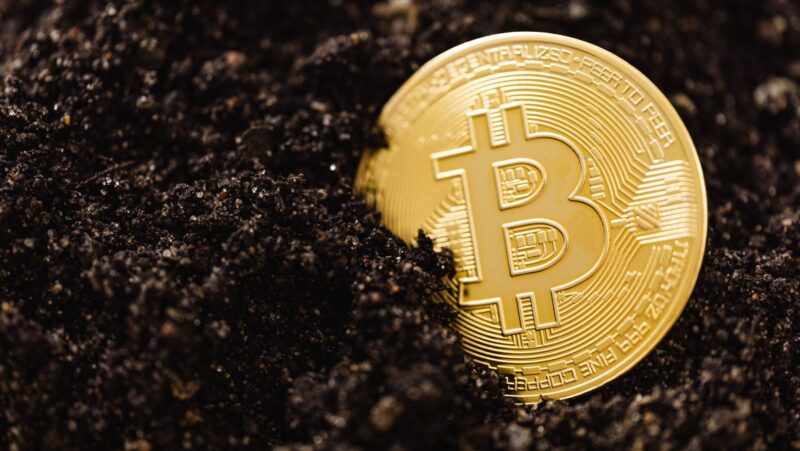
Crypto markets are in a constant battle with banks and financial institutions, which will continue until the adoption of decentralized finance is inevitable. DeFi provides individuals with an unprecedented ability to control their own funds and invest how they please – banking on them to finally capitalize on these new opportunities.
The “what is defi” is a new type of decentralized finance, which has been gaining traction in recent years. The battle of banks vs. DeFi is a win for individual crypto investors.
The current condition of banking and finance is a convoluted maze that even seasoned bankers find difficult to traverse. There is a method to this madness, despite appearances. As Nobel Laureates Muhammad Yunus and Joseph Stiglitz have already warned, central banking, in particular, has evolved to maintain the status quo. It is “the largest fraud in the history of humanity,” according to Mike Maloney, a specialist on monetary history and economics. Maloney believes that handing the keys to the monetary printing press to a tiny number of unelected persons would destroy the purchasing power of workers’ savings for the advantage of the few who profit from asset price inflation.
Individuals and small company owners who just want to maintain the money they have earned are increasingly asking: Is my bank working for me, or am I working for my bank, in the aftermath of the global financial crisis and severe bank runs throughout the globe. However, there were no alternatives to central bank currencies until recently, and no one could supply the services of commercial and investment banks.
Institutional banks are no longer the only participants in the game, thanks to the rise of cryptocurrencies and decentralized finance (DeFi) platforms. Before the 2008 financial crisis, institutional banks had unchallenged, if not unrestrained, influence. Now, hundreds of new entrants are competing to overhaul the underpinnings of financial institutions as we know them.
So, what does this imply for the common person?
Traditional finance vs. DeFi
Let’s compare the advantages of DeFi to conventional and centralized banking and finance from the standpoint of individuals and small and mid-sized businesses (SME) company owners to clarify some of the fog.
Banking and finance in the conventional sense:
By lending their funds to banks, the person assumes the risk. Most banks use fractional-reserve banking, which implies that if a customer deposits $100, the bank may lend out $90 while only keeping $10 on hand at any one moment. As the 2008 financial crisis shown, most of money is invested in complicated financial products that may be very vulnerable to credit defaults.

By default, an individual’s purchasing power decreases. Bank-held fiat money is linked to the monetary system, which may be depreciated due to inflation and currency debasement. So, if you deposit $100,000 in a bank account at the start of the year and the US dollar depreciates 10% over the course of the year, your savings will be worth 10% less at the end of the year.
Over the previous nine months, the US Dollar Index has outperformed Bitcoin…$USD $BTC pic.twitter.com/pb4Ico6YO1
December 18, 2020 — Charlie Bilello (@charliebilello)
Interest rates in the United States range from 0.03 percent to 0.09 percent. However, if currency depreciation is 10%, you’re still down 9.91-9.97 percent.

Opening accounts and gaining access to specific financial services may be difficult. Banks impose their own arbitrary criteria on customers, such as loyalty, minimum balances (for example, $2,000,000), credit checks, and access to financial services.
According to Riley v. California, 573 U.S. 373, the individual’s data is monitored and is technically the bank’s data (2014).
The financial products available are minimal. Loan applications are often long and difficult to complete, eliminating many people who might benefit the most.
In decentralized finance, on the other hand:
- Individuals have total financial authority and may freely trade or even store their valuables in cold storage for further protection.
- Individuals may invest in a wide variety of assets that are not linked to the dollar and can operate as a hedge against inflation, such as Bitcoin (BTC).
- On DeFi lending platforms, users may put their money to work for them and exchange digital assets like tokenized art. While it is erratic, returns may range from 2% to 50,000%, and there are alternatives to stake.
- Individuals may come and go as they choose since there are fewer (if any) locked-in contracts to utilize services.
- There are no “bank costs,” but there may be gas or exchange fees, like with Ethereum.
- Individuals may use their anonymity to trade and store their assets.
- Individuals may use their crypto as collateral to have access to more financial products like as rapid loans and leveraged trading without having to wait for long and complicated approvals.
Where does the future lay for decentralization vs. centralization? Experts respond.
Adoption of DeFi
Overall, decentralized finance’s increased advantages are set to give conventional banks a fight for their money. Indeed, according to the rules of Game Theory, institutional banks will have no option but to join the revolution in order to stay relevant, as experts like Robert Breedlove have indicated. Even conservative fund managers like Ray Dalio and David Morgan have jumped on board, openly stating that cryptocurrencies would be included in their portfolios. United Wholesale Mortgage has announced that Bitcoin would be accepted for mortgage repayments. With the announcement of the world’s first Bitcoin exchange-traded fund (ETF), the pace of decentralized finance acceptance inside conventional finance is expected to accelerate even further.
Decentralized finance seems to have won the first fight. However, the conflict is far from done. Up to 98 percent of the world’s CEOs polled remained involved in the conventional banking system at the time of writing this article. Indeed, banks and bank-centric payment gateways handle approximately $127 trillion in cash worldwide, but the market capitalization of cryptocurrencies is just $2.2 trillion (less than 2 percent ). To put it another way, decentralized finance is still in its infancy.
What’s been keeping a pure-Bitcoin ETF from becoming a reality?
This indicates that for at least the next ten years, organizations attempting to bridge the gap between new decentralized finance and old centralized finance will have a substantial potential market. The increased regulatory acceptability of crypto, as well as the availability of new tools enabling companies to utilize crypto in a compliant manner, are driving this expansion.
To begin with, major financial centers such as Singapore now have explicit licensing systems for cryptocurrency businesses. This gives crypto firms the same legal standing as regular financial institutions. Institutional investors and major multinational corporations may now confidently deal with cryptocurrency due to regulatory support.
Second, companies may now use tools to handle their crypto payments in a compliant way. Remote employees and company owners, for example, may issue and manage invoices in one currency, like as USD, and be paid in another currency, such as Ether (ETH). Invoicing, payroll, and accounting in crypto are all made easier as a result of this.
While decentralized money has yet to gain widespread acceptance, two things are clear for individuals. First, as the rate of DeFi adoption rises, the necessity for banks to compete for your business will rise as well. Second, for the first time in history, you have more power than ever before to profit from the changing nature of money. That is arguably the most significant triumph of all.
There is no financial advice or suggestion in this article. Every investing and trading choice has risk, and readers should do their own due diligence before making a decision.
The author’s views, ideas, and opinions are entirely his or her own, and do not necessarily reflect or represent those of Cointelegraph.
Christophe Lassuyt is the co-founder of Request Network, an open source protocol supported by YCombinator that provides a blockchain-based suite of financial solutions for crypto-first businesses, spanning from invoicing through payroll, costs, and accounting. Christophe worked on several crypto ventures before co-founding Request in 2017, such as Moneytis, which did money transfers using crypto as a backbone in 2015. Christophe has vast experience working as a finance manager in a variety of firms spanning North America, Europe, and Asia.
Watch This Video-
The “defi vs banks” is a battle that has been going on for years. Banks are trying to stop the crypto revolution and DeFi is fighting back. Investors have taken advantage of this situation by investing in both sides of the fight.
Related Tags
- fintech vs defi
- defi threat to banks
- defi banks
- defi bank account
- defi for business


